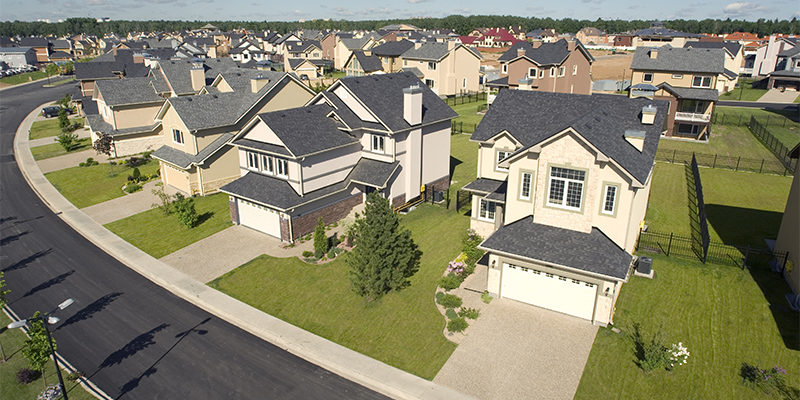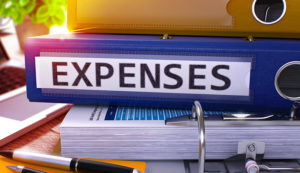Everything You Need To Know About HOA Fees

If you are moving into a neighborhood governed by a homeowners association, then you need to know about HOA fees. What exactly are these fees? And is there a way you can avoid paying them?
Browse By Category
Sign up for Our Newsletter
If you are moving into a neighborhood governed by a homeowners association, then you need to know about HOA fees. What exactly are these fees? And is there a way you can avoid paying them?
What Are HOA Fees? HOA Fees Meaning Explained
Before you can understand what these fees are, you must first learn how homeowners associations work. A homeowners association is a governing body that creates and enforces rules within a planned community. An HOA is also responsible for maintaining the community, usually in the form of hiring vendors to perform repairs and maintenance work or rendering other types of services.
This is where homeowners association fees come in. HOA fees, otherwise known as HOA dues, are sums that associations charge to homeowners to pay for various expenses. These fees are deposited directly to an association’s operating fund, with a portion of it going to the reserve fund. How often members must pay these fees depends on the association, but it is usually charged on a monthly or annual basis.
What Do HOA Fees Cover?
 Not all homeowners associations are created equal. Thus, the exact items and expenses that dues cover can vary from community to community. Though, the typical HOA fee includes coverage for maintenance services, professional fees, and insurance premiums. Some examples are management fees, landscaping costs, seasonal services like snow removal, and pool maintenance.
Not all homeowners associations are created equal. Thus, the exact items and expenses that dues cover can vary from community to community. Though, the typical HOA fee includes coverage for maintenance services, professional fees, and insurance premiums. Some examples are management fees, landscaping costs, seasonal services like snow removal, and pool maintenance.
As mentioned above, reserve fund contributions also account for a portion of HOA dues. Every homeowners association should have a reserve fund for the purpose of covering unanticipated expenses as well as major replacements and repairs in the future. Some examples of reserve fund expenses are roof replacements, road repaving, and pool retiling.
How Much Are HOA Fees?
Because every association is different, there is no universal amount when it comes to HOA dues. The location, type, and size of an association, as well as the nature of its amenities, will influence the calculation of these fees. But, average HOA fees can range from $200 to $400. Some communities, usually higher-end ones, even charge monthly dues in the thousands.
How an Association Determines HOA Dues
The HOA board is responsible for calculating HOA dues. This process typically starts with budget preparation, anticipating all the needs and expenses of the community for the coming year. They will then factor in reserve fund contributions. Once the board has determined the total amount, they will then divide this among the members of the community, themselves included.
For example, if an association’s anticipated expenses total $300,000 and there are 100 members in the community, then according to the HOA fee calculator, that would amount to $3,000 per member for the year. The association can divide that further into 12 monthly payments to arrive at $250 per member per month.
Why Are HOA Fees So High?
 There are a number of factors that can affect the cost of HOA dues. Economic factors such as inflation, the rising cost of materials, and increased wages can all play a role since they influence vendor fees. The location of your community can also have an effect. If you live in a rich area, your HOA fees will also tend to be higher.
There are a number of factors that can affect the cost of HOA dues. Economic factors such as inflation, the rising cost of materials, and increased wages can all play a role since they influence vendor fees. The location of your community can also have an effect. If you live in a rich area, your HOA fees will also tend to be higher.
If you believe that your HOA fees are much higher than they should be, talk to your HOA board. Perhaps there are certain expenses your association can cut back on without sacrificing quality. Most HOA boards are required to present the budget to the membership during the annual meeting. A budget ratification meeting is even mandatory in some states (like North Carolina).
In some cases, high HOA fees can signal mismanagement of funds. To avoid fraud and embezzlement in HOAs, make sure your HOA board is being transparent with all of the association’s finances. Having a professional perform regular HOA audits can also discourage or identify fraud.
Limitations on Increasing HOA Dues
Homeowners association fees don’t remain the same forever. In fact, it is normal for an association to increase HOA dues every now and then. This usually happens when the cost of goods and services rises. An HOA board may also be forced to raise fees if unbudgeted or unexpected costs come up that the reserves can’t cover.
Although an association can raise its dues, that does not mean its ability to do so is limitless. Certain state laws and provisions within its governing documents bar associations from making HOA fees too high. For instance, in Arizona, HOAs may not raise dues by more than 20 percent of the previous fiscal year’s dues without obtaining approval from a majority of their members.
It is important to understand that limitations like this are not always beneficial to the association. For example, if your HOA’s governing documents prevent the board from raising dues by more than 5 percent, then your association might face an inability to meet its annual budget. This could lead to serious cuts and poor maintenance of the community, ultimately resulting in lower property values.
The Consequences of Refusing to Pay HOA Dues
Before you start Googling “how to get out of paying HOA dues,” let us save you the trouble. The short answer is, you can’t. Members agree to abide by the association’s rules (including paying monthly fees) when first buying their homes.
Possible consequences of non-payment include:
- Late Fees. Depending on state laws and your governing documents, your HOA might charge a late fee on top of your unpaid balance. In some cases, this fee can compound over time.
- Suspension of Privileges. Some associations can suspend your member privileges for refusing to pay fees. That means you will no longer have access to your community’s amenities and facilities. While this can prove effective for some non-paying members, it is not really a good penalty for members who don’t use the amenities in the first place.
- Lawsuits. Your association may file a lawsuit against you and take you to small claims court in an effort to seek compensation.
- Liens. Many associations have the ability to attach a lien to your property if you fail to pay your HOA fees. Liens make it hard for you to sell your property and can even lead to the next item on this list.
- Foreclosures. Once your association has filed a lien on your property, it can then choose to foreclose on that lien.
Defaulting on your payments has an unfair impact on other homeowners. When an association experiences a high delinquency rate, it will fail to cover the cost of necessary services, leading to a poorly maintained community. It may even be forced to levy special assessments. Therefore, in essence, when you refuse to pay your HOA fees, other homeowners will have to pay more to cover for you. If you are struggling financially, you can always ask your board for a payment plan.
Are HOA Fees Worth It?
 Some people dislike joining homeowners associations because of the very idea of having to pay HOA fees. But, since these fees come in exchange for amenities and services, they are definitely worth the added cost. Always remember that HOA dues ultimately go toward the beautification and maintenance of the community. This, in turn, leads to higher property values.
Some people dislike joining homeowners associations because of the very idea of having to pay HOA fees. But, since these fees come in exchange for amenities and services, they are definitely worth the added cost. Always remember that HOA dues ultimately go toward the beautification and maintenance of the community. This, in turn, leads to higher property values.
Many homeowners associations have a hard time collecting HOA fees, especially when they become past due. An HOA management company can help with this, though. Start looking for the right management company in your area today using our online directory.
RELATED ARTICLES:
- How Can An HOA Reduce Delinquencies?
- What Are HOA Reserve Funds For?
- HOA Fee Calculator: Setting A Fair Fee For Homeowners
Trending Now
Related Article
Sign up for Our Monthly Newsletter
Sign up below for monthly updates on all HOA Resource















